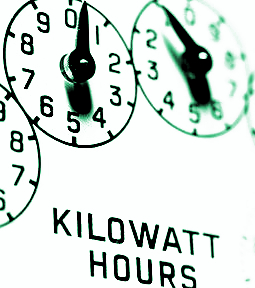Family figures fail to slow storming tax repeal
 Economists say that the repeal of the carbon and mining taxes could cost households much more than they save.
Economists say that the repeal of the carbon and mining taxes could cost households much more than they save.
New research suggests scrapping the taxes will bring annual savings in electricity costs of $550 per household, but it will trigger the withdrawal of up to $3500 per household in government payments linked to the taxes.
This is the finding from modelling by the Australian Institute modelling, based on a low-income family with two working adults and three school-age children.
The researchers concluded that the withdrawal of payments and offsets from the former government’s clean energy package, in addition to some funded by the Minerals Resource Rent Tax will take a fair bit more money than would be saved.
The report comes just days before the Federal Government’s two-week Senate session for debate of the repeal of the carbon and mining taxes, which starts today.
The two taxes were the reason Labor lost the last election, according to some.
But more recently international voices have warned against removing the taxes designed to reduce harmful emissions and build the energy systems of the future.
Last week, visiting Nobel Laureate and prominent global economist Joseph Stiglitz said those who act first on carbon pricing will have a competitive advantage.
In a comparison of increased taxes on miners, industry and carbon-emitting practices versus increased taxes for workers and the labour market, Stiglitz says; “It seems to be a no-brainer, taxing carbon makes more sense.”
“I believe that over the long run we will have to have a carbon tax, the world will come around to this,” he said.
Back on the mining tax, the Australian Institute acknowledges that intense negotiations in the design of the Minerals Resources Rent Tax left it in a fairly useless state by the time it was actually imposed, which is why it has raised much less than it was planned, and why the current Government can claim large savings through its repeal.
But the assessment of the financial impact shows that for everyday families, the repeal could cost as much as $3500 per year.
The modelling was based on a family with three children, one at primary school and two in high school, and where both adults earn just above the minimum wage of $37,000.
The loss for this family from the removal of the School Kids Bonus would be about $2050. The household would also lose $1000 from the repeal of the low income superannuation contribution scheme, which pays $500 to low-income individuals to bolster retirement savings.
The family would lose another $456 from the scheduled $1200 rise in the tax-free threshold next year to $19,400, also set to go as part of the clean energy repeal package.
The Federal Government is very keen to get its carbon tax repeal through the Senate in the next fortnight, saying that delays beyond July would mean companies have to allow for the tax for another year.








 Print
Print